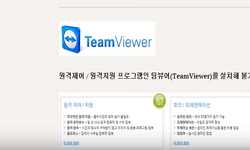자율운항선박 원격제어의 상용화를 위해서는 검증을 위한 해상실증이 필요하고, 안전하고 효율적인 해상실증을 위해서는 항행원칙이 필요하다. 현재 항해원칙은 IMO의 해상충돌예방규칙(COL...
http://chineseinput.net/에서 pinyin(병음)방식으로 중국어를 변환할 수 있습니다.
변환된 중국어를 복사하여 사용하시면 됩니다.
- 中文 을 입력하시려면 zhongwen을 입력하시고 space를누르시면됩니다.
- 北京 을 입력하시려면 beijing을 입력하시고 space를 누르시면 됩니다.

자율운항선박 원격제어의 해상실증을 위한 항행원칙에 관한 연구 = Navigation Principles for Sea Trials of Remote Controlled Maritime Autonomous Surface Ships
한글로보기https://www.riss.kr/link?id=A109586740
- 저자
- 발행기관
- 학술지명
- 권호사항
-
발행연도
2025
-
작성언어
Korean
- 주제어
-
등재정보
KCI등재
-
자료형태
학술저널
- 발행기관 URL
-
수록면
125-131(7쪽)
- DOI식별코드
- 제공처
-
0
상세조회 -
0
다운로드
부가정보
국문 초록 (Abstract)
자율운항선박 원격제어의 상용화를 위해서는 검증을 위한 해상실증이 필요하고, 안전하고 효율적인 해상실증을 위해서는 항행원칙이 필요하다. 현재 항해원칙은 IMO의 해상충돌예방규칙(COLREGs)인데, 원격제어의 해상실증에 적용하기 위해서는 제반 문제점 해결이 우선 필요한 실정이다. 이 연구의 목적은 현행 국내외 항행규정 또는 지침 중에서 해상실증에 우선 고려되어야 할 항행원칙을 식별하고, 이에 대한 대응방안을 제시하기 위한 것이다. 연구방법은 4단계 절차(분석, 도출, 논의, 제안)를 통해 수행하였는데, 해양안전심판원의 재결서와 국내외 규정 및 선급규칙을 원격제어 특징과 서로 연계하여 분석한 후, 우선 고려되어야 할 항행원칙을 도출하고 논의하여 해상실증에 적용방법을 제안하였다. 연구결과, COLREGs 제18조(선박상호간 책임한계)에 명시된 조종성능 우열 순위의 결정이 우선 검토되어야 할 항목으로 도출되었고, 원격으로 제어되는 자율운항선박이 우선피항하는 것이 타당한 것으로 연구되었다. 아울러, 원격제어 역시 COLREGs 준수는 물론, 다양한 상황에 따른 ‘선원의 상무’와 ‘적절한 피항협력 동작’ 역시 준수해야하는 것으로 나타났다. 이 연구는 현재 상용화가 추진 중인 자율운항선박 원격제어의 안전하고 효율적인 해상실증에 기여할 것으로 기대된다.
다국어 초록 (Multilingual Abstract)
To commercialize remote control of maritime autonomous surface ships (MASS), offshore sea trials are required for verification. For this, navigation principles are necessary for safe and efficient offshore sea trials. Currently, navigation principles ...
To commercialize remote control of maritime autonomous surface ships (MASS), offshore sea trials are required for verification. For this, navigation principles are necessary for safe and efficient offshore sea trials. Currently, navigation principles are the IMO’s rules for Preventing Collisions at Sea (COLREGs). To apply them to remote control for sea trials, various problems need to be solved first. The aim of this study was to identify navigation principles that should be given priority in sea trial verification among current domestic and international navigation regulations or guidelines to suggest ways in which these principles could be applied in the field. The research was conducted with a four-step procedure (analysis, derivation, discussion, and proposal): After analyzing Maritime Safety Tribunal's reports and domestic and international regulations and classification rules in connection with remote control features, navigation principles that should be considered first were derived and discussed and the method of application to offshore verification was proposed. Results showed that the priority of the maneuverability specified in Article 18 (Limitations of Responsibility Between Ships) of COLREGs should be reviewed first. It was found that it would be reasonable for remotely controlled MASS to give priority to avoiding. Moreover, remote control should also comply with COLREGs, ‘seafarer’s duty’ and ‘appropriate navigation cooperation actions’ according to various situations. This study is expected to contribute to safe and efficient offshore demonstration of remotely controlled MASS, which is currently being commercialized.
동일학술지(권/호) 다른 논문
-
선박 내 불완전한 무선 통신 영역에서 사용 가능한 긴급 구조를 위한 측위
- 한국항해항만학회
- 강태원
- 2025
- KCI등재
-
지방관리연안항 항만재개발사업 추진을 위한 법제도 개선에 관한 연구
- 한국항해항만학회
- 최혜린
- 2025
- KCI등재
-
선박 충돌사고 예방을 위한 예망어선 최소안전거리 분석에 관한 연구
- 한국항해항만학회
- 김태연
- 2025
- KCI등재
-
우수물류기업 인증이 기업투자활동에 미치는 영향에 관한 연구
- 한국항해항만학회
- 이성윤
- 2025
- KCI등재




 ScienceON
ScienceON 스콜라
스콜라



